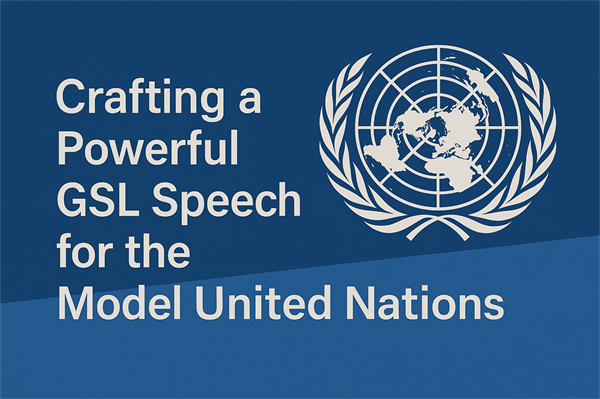Model United Nations Shaping Future Global Leaders
In today’s interconnected world, understanding global issues and developing diplomatic skills are more important than ever. One of the best platforms that offers young minds an opportunity to experience real-world international diplomacy is the Model United Nations (MUN). It is an academic simulation of the United Nations where students step into the shoes of diplomats to discuss global challenges, negotiate policies, and find collective solutions.
What is Model United Nations?
Model United Nations, often known as MUN, is an educational conference that imitates the proceedings of the United Nations. Students, known as delegates, represent different countries and work together in committees such as the General Assembly, Security Council, or Human Rights Council. Each delegate must research their assigned country’s policies, understand its stance on global issues, and present solutions that align with their nation’s interests.
The primary goal of MUN is to encourage dialogue and cooperation among students, fostering a spirit of diplomacy and respect. The conferences also teach the importance of international relations, global peace, and collective decision-making.
The Structure of an MUN Conference
An MUN conference follows a structured process similar to the actual United Nations. The event begins with an opening ceremony where participants are introduced to the theme and committees. Delegates then proceed to their respective sessions where debates, discussions, and resolutions take place.
Each session typically includes:
- Roll Call: Where attendance is marked, and countries declare their status as “present” or “present and voting.”
- Opening Speeches: Delegates deliver speeches introducing their country’s position on the topic.
- Debate: Delegates discuss issues, share opinions, and engage in moderated or unmoderated caucuses (formal and informal discussions).
- Draft Resolutions: Delegates work together to create written solutions to the problems being discussed.
- Voting: The committee votes on whether to adopt the proposed resolutions.
Through this process, participants not only learn about global issues but also gain insights into how international organizations function.
Skills Gained from Model United Nations
Participating in MUN offers numerous educational and personal growth benefits. It goes beyond academic learning and focuses on practical skills that are essential in the modern world.
- Public Speaking: MUN helps students become confident speakers. Delivering speeches and responding to questions in front of a crowd improves articulation and clarity.
- Research and Analysis: Delegates must thoroughly research their country’s history, policies, and global relations. This enhances critical thinking and analytical skills.
- Negotiation and Diplomacy: Finding common ground with others requires persuasion, compromise, and collaboration — key skills for leadership.
- Teamwork: Drafting resolutions and building alliances encourages teamwork and mutual respect.
- Problem-Solving: Delegates learn to identify real-world problems and craft innovative solutions.
- Confidence and Leadership: Representing a nation and defending its policies boosts self-confidence and leadership abilities.
These skills make MUN participants more prepared for academic, professional, and social challenges in the future.
Why MUN Matters in Today’s World
The significance of Model United Nations goes far beyond the conference itself. It plays a vital role in shaping responsible global citizens. In an era where issues like climate change, poverty, terrorism, and inequality affect all nations, understanding global cooperation is crucial.
MUN encourages youth to think globally but act locally. It fosters empathy, respect for diversity, and awareness of global politics. By understanding multiple perspectives, students become more open-minded and solution-oriented. Moreover, MUN builds the foundation for future leaders who value peace, diplomacy, and mutual understanding.
Model United Nations in Schools and Colleges
Educational institutions across the world have embraced MUN as part of their co-curricular activities. Many schools and universities host their own conferences, such as Harvard Model United Nations, Ivy League MUN Conference, or Delhi University MUN. These events bring together hundreds of students to discuss pressing global issues.
Teachers and mentors play a crucial role in guiding participants through research, policy drafting, and speech preparation. For many students, their first MUN experience is a turning point that ignites a lifelong interest in politics, law, or international relations.
Challenges and How to Overcome Them
While MUN is enriching, it can be challenging for beginners. Understanding international policies, following complex procedures, or speaking in front of an audience may seem intimidating at first. However, with proper preparation and practice, these challenges can be overcome.
Reading UN reports, watching debates, and participating in smaller practice sessions can build confidence. Collaboration with peers also helps in learning committee procedures and writing resolutions effectively.
Conclusion
Model United Nations is more than just an academic simulation — it is a journey of self-discovery, diplomacy, and leadership. It transforms classrooms into global platforms where students discuss the same issues that world leaders debate at the United Nations.

Comments
Post a Comment